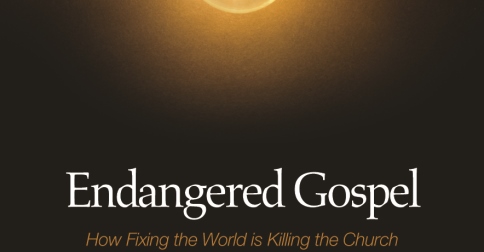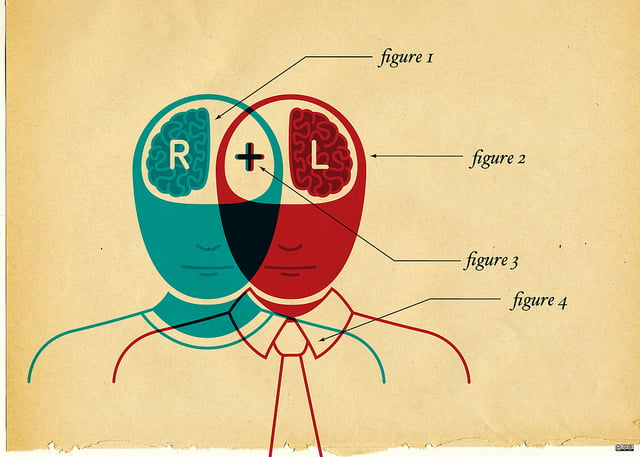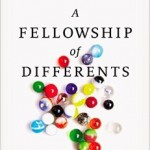 [ On July 5-7, The Ekklesia Project will hold its annual gathering in Chicago, which will be on the theme of Slow Church. Between now and July, we will be running a series of lguest reflections here by folks connected with the E.P. We’ve asked guest posters to reflect on the meaning of Slow Church from their own local contexts. More info on the E.P. gathering. ]
[ On July 5-7, The Ekklesia Project will hold its annual gathering in Chicago, which will be on the theme of Slow Church. Between now and July, we will be running a series of lguest reflections here by folks connected with the E.P. We’ve asked guest posters to reflect on the meaning of Slow Church from their own local contexts. More info on the E.P. gathering. ]
Today’s reflection, the second in the series, is by Jarrod Longbons.
Read the first post by Lee Wyatt.
I am part of a thriving, yet “slow church” community. It’s called YAC (Young Adult Community), a ministry of Northside Church of Christ for members of late generation X and early generation Y in the campus “twin city” of Bloomington-Normal, Illinois. Our group is mixed, consisting of college and graduate students, single professionals, marrieds, parents (babies in tow), dating couples, those who attend Northside, those who are disillusioned with church, Protestants, Catholics, and some with disabilities. The patchwork of people makes our life together quite colorful. Like many other ministries, we have regular meeting times, classes, a community garden, creativity nights, campouts, mission trips, service projects, etc. But the “bread and butter” of our life together is our Sunday evening Eucharistic celebration.
At 7pm, participants descend upon our home with enough food and drink for all. Our house immediately starts buzzing with fellowship; a meal is shared, stories told, jokes rehearsed. At dinner’s end, most are intentional about cleaning up the potluck aftermath. Norman Wirzba is right when he says that even doing the dishes together can build community!
Conversation time begins traditionally: announcements, updates, prayer issues, and then an offering. The money is taken up and gifted to single mothers, health bills, catastrophe relief efforts, or whatever burden is most pressing. With the clamor turning to calm, we take a moment to pray for the food. Often the prayer includes lines such as “God, we thank you for this meal. We acknowledge to eat something had to give its life, so we are grateful for the gift. We acknowledge that to participate in the Body of Christ, Christ gave his life, and we are more grateful for that gift.” This is an intentional way to reflect on the costliness of and grace in everyday life. With Josef Pieper, we believe this practice wrests us away from the traps of a “workaday world.”
Next, we move to a group conversation. Currently, we are encountering Bonheoffer’s Life Together with the aid of the Ekklesia Project’s CFI discussion material. Other times have been devoted to theological doctrines and others to books of Scripture. As noted, our group is diverse, especially so in relation to people’s understanding of Christian thought. Our group has a few PhD and MA students of theology/philosophy and others with advanced degrees in economics and literature. There are also missionaries (on furlough), woodworkers, artists, professionals, and social workers. So, conversations are varied; not everyone is at the same place. Paramount to the community is discovering and discussing the faith together, even if it takes more time than one would like. In fact, a member recently commented that they appreciate how “the group teaches itself;” there’s always someone who can address the ideas of another even if it is not the leader.
Seamlessly, the focus moves to communion. It is for this reason – not food, study, or fellowship – that we gather. Everything else finds its consummation in our practice of the Lord’s Supper. Ever-present are a loaf of bread and a decanter of wine on the table in the center of our space. We uphold the idea that this is a communal event, unlike the inward private moment so many American churches have made it. Often, the meditation includes some reflection of William Cavanaugh’s ideas from Being Consumed: Economics and Christian Desire: “as we consume the body and blood together, we acknowledge that we are being consumed into the Body of Christ. The deeper we explore the purpose of this meal, the more we become part of one another. Your hurt is my hurt; my joy is your joy. Because of Christ, our fates are aligned.” We then break bread and raise our glasses. At this time, it is also common for people to share testimonies of thanksgiving with the community.
Though the climax, our evening does not end here. The spirit of everything before flows into a time of spontaneous fellowship, of simple “being together.” The point is slow, intentional investment in one another. This is a low-tech, “high touch” time, as we encourage one another to be present by resisting texting or facebooking; our challenge is to “be where you are.” Sometimes this fellowship goes on into the early hours of Monday morning.
Not long ago, after the house emptied, I sat outside with Corey, expressing my anxieties. I explained that I am excited to participate in a group so thoroughly committed to life together. But could it be sustained? I mean, in our area, and in my own congregation, people clamor for more community, but lifestyles stand in the way. Older members of Northside reminisce of a similar time with their cohorts and lament its passing. I wondered, “When we have kids and buy big houses, will this all end?”
A month later, as Corey and I sat behind my house waiting for another unpredictable Sunday night to begin, Corey pulled out his Mac book and read a letter addressed to me. Allow me to paraphrase what it said:
“Our group grows because it is about life, which is something everybody wants. What we do is slow, intentional, and life giving, and if we continue to allow these things to shape our faith, then we will continue to discover how to live in intentional community despite the life stage. However, if our aim is growth for the sake of growth, we will fail to be life-giving, and we will diminish.”
It rings true to me. Our little community is experiencing vitality, and it does so because of its commitment to slowing the pace with intentional practices. The pace and practice has proven powerful enough to withstand my best efforts as a leader to mess it up with too much planning, preparing, and pushing. YAC thrives because its members carefully filter life through the description of the ancient church in Acts 2:42 – “They devoted themselves to the apostles’ teaching and to fellowship, to the breaking of bread and to prayer (NIV).”
————-
Jarrod M. Longbons is an Associate Minister at Northside Church of Christ in Bloomington, IL and a PhD student at the University of Nottingham (theology). His theo-blog is www.theartofthegoodlife.blogspot.com












